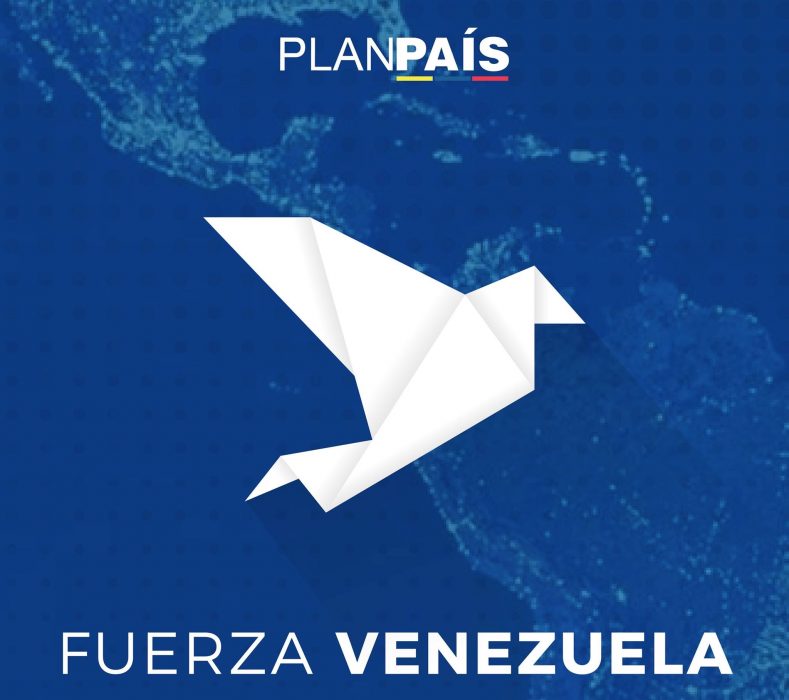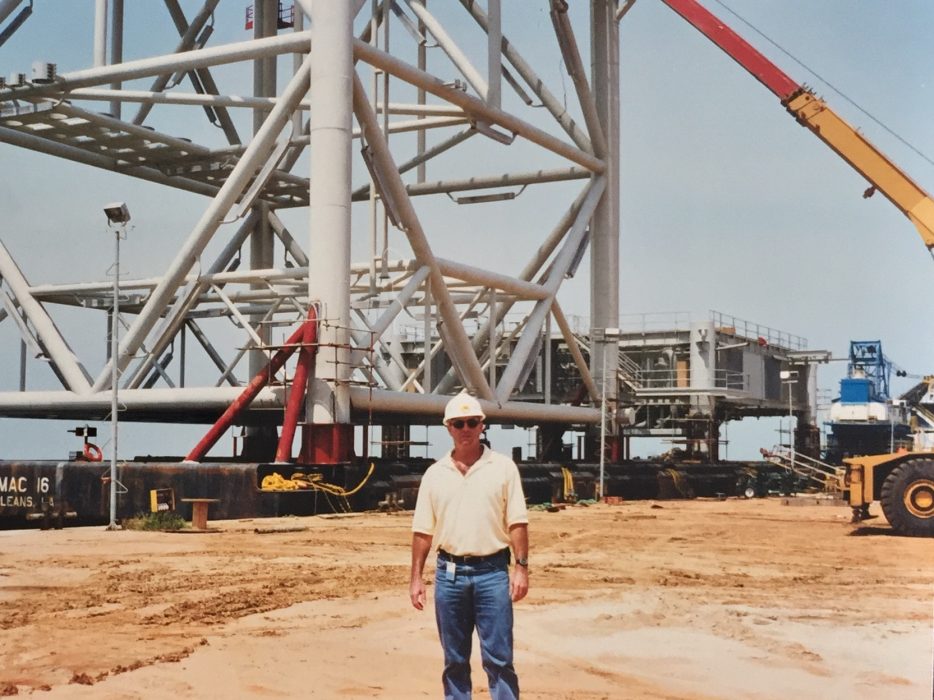Venezuela’s Future & Plan Pais
As we monitor the ongoing political power-struggle, humanitarian crisis and breakdown of basic public services, one thing is clear: Venezuela will require a massive rebuild of their government, financial and oil and gas sectors, transportation infrastructure, water systems, food production capabilities, among others. The Country’s “opposition in-exile” has developed a plan to remove the current government from power and address the complex array of challenges facing their population – the organization is “Plan Pais” and they have a conference here in Tampa, March 22-23, 2019 – take a look…
Website: https://www.planpais.com/
Wikipedia: https://en.wikipedia.org/wiki/Plan_País
Facebook: https://www.facebook.com/planpais
While Plan Pais has existed as an organization since 2011, “Interim President” Juan Guaidó brought it to the fore in late-January, and, addressed staff and supporters at a Plan Pais news conference in Caracas on February 1, 2019. Mr Guaido references the strategies of the organization regularly in his public speeches with thoughtful detail, while self-exiled Venezuelans manage international support from the United States and dozens more Nations around the world.
Notwithstanding recent events, change will come, and soon Venezuelans will be faced with a “complete rebuild” of their economy and social structures as they navigate the “undoing” of twenty years of administrative mismanagement under the Chavez & Maduro regimes. Prior to the Plan Pais news conference in Caracas (February 1st) a reporter interviewed Hiram Gaviria, National Assembly member and career agronomist. Explaining the critical need to reconstruct Venezuela’s ability to feed its population, Mr Gaviria stated the estimated requirement for agricultural equipment in Venezuela to be US$5Billion annually for the next 5-8 years (https://youtu.be/rCNbMPS2L7A). Expect that budget to be multiplied many times over in both the Oil & Gas and Transportation Infrastructure sectors.
Mister Maquinaria will be represented at the Tampa conference this week and seeks discussion with global partners who recognize this unique opportunity to take part in the stabilization, recovery and expansion of the Venezuela society and economic engines. Having lived, worked and married in Venezuela (1996 – 2002), I am keen to be a part of the reconstruction of the Country specific to my experience in the oil and gas sector, transportation infrastructure, and other sectors based on priorities established by Plan Pais. Please contact me with interest and let’s have a chat!
Venezuela’s “Tsunami Politico”
A seismic-shift is underway in Venezuela, with myriad implications worldwide. This is “Cuba on steroids”, with the titanic exception of a population “who once had everything” in a globally connected society, then “lost everything” under exceptionally poor governance, all while continuing to preside over unparalleled concentrations of natural resource wealth.
For those who understand the culture, society and follow events in Venezuela, the current situation and accelerated demise of President Maduro’s “Chavista” regime has a ring of finality – an overdue outcome to witness, study and document. Venezuela’s “next government” and entire Western Hemisphere, must have a cohesive plan moving forward. It appears the early chapters of transition were already written, now playing out coinciding with significant historical, recent & upcoming events:
· January 5th – Juan Guaidó chosen to lead the Venezuela National Assembly, an elected body widely recognized as the only remaining entity with a mandate from the people
· January 10th – President Maduro’s inauguration for a second, six-year term based on a rigged-election in May 2018, and boycotted by the opposition
· January 23rd – mass demonstrations across the Country and embassies around the world to coincide with this date in 1958 when a civilian-military movement overthrew the government of the Country’s last dictator, General Marcos Pérez Jiménez
· January 23rd – Caracas, Juan Guaidó, speaking to tens of thousands of supporters at the main opposition rally, declares himself “acting” President of Venezuela (referencing a clause in the current Constitution to legitimize the action) – his claim quickly recognized by the Organization of American States (OAS) and several governments, including Argentina, Brazil, Canada, Colombia, Ecuador, Peru and United States
· January 23rd – President Maduro (now disputed) announces cutting diplomatic ties with the United States: all embassy personnel ordered to leave within 72 hours; subsequently, “acting” President Juan Guaidó requests the United States diplomatic mission remain in the Country
· January 26th – deadline looms per “disputed” President Maduro’s call for all United States diplomatic personnel to depart Venezuela
· February 2nd – in eight days-time, the 20th anniversary of the first Inauguration of President Hugo Chavez – for “Chavistas” and opposition followers, a significant date
It is clear Venezuela’s “opposition in-exile” had a plan developed to remove the current government from power, finally set in-play by a convergence of events favorable for launch. Today, confrontations loom as “acting President” Juan Guaidó has stated “demonstrations and rallies will continue until liberty is achieved”. The current situation is complex but not surprising – if scripted, a compelling end to the “Chavista Era” would culminate with Nicolas Maduro standing down at the recommendation of the Armed Forces, “acting President” Juan Guaidó addressing the nation on February 2nd, calling for national peace and reconciliation, detailing the structure and actions of his transitional government, addressing the current humanitarian crisis, plan to stabilize the economy, and announcing a firm date for fresh elections later this year. The appearance of a democratic path for a peaceful transition per the Venezuelan Constitution has allowed increased international pressure which, in my view, will become overwhelming for the Maduro Regime.
President Maduro must have received the message that violent suppression of opposition dissidents at his direction, or otherwise on his watch, would bring dire consequences to himself and his “Chavista” cronies. In fact, the International Criminal Court (ICC), has a pending request by six neighboring Countries to initiate an investigation on crimes against humanity allegedly committed in the territory of Venezuela since February 12, 2014. The rank and file of Venezuela’s Armed Forces have no stomach for committing atrocities domestically, nor defending “La Patria” from regional military forces (supported by the United States) whose abilities dwarf their own experience, competency and power. Colombia comes to mind, Venezuela’s neighbor to the West and “cultural sister”, as a Peace-Keeper of good will.
Nicolas Maduro – uncharismatic, weak, inept – was always a strawman for the corrupt political beneficiaries enabled and entrenched by Hugo Chavez. The legacy and cohesion sustained under Chavez died with him in March 2013, and the fuse lit for the regime’s eventual demise.
Regardless of imminent events, change will come, and soon Venezuelans will be faced with a “complete rebuild” of their economy and social structures as they navigate the “undoing” of twenty years of administrative mismanagement, squandering of natural resources, embezzlement, fascism, thuggery and corruption. Having lived in Venezuela “before-during-after” Hugo Chavez’s ascension to power, my experience suggests there will be a powerful and admirable effort on the part of those who remained behind (a majority with no other choice) and those who fled & return quickly, to work for peace and reconciliation. National unity is another matter, a longer-term goal that is required before many others who departed – Venezuelan Nationals, business partners, etc – will feel secure enough to return.




Recent Comments